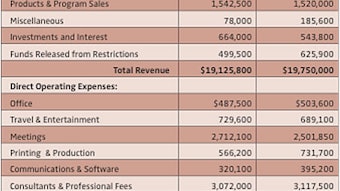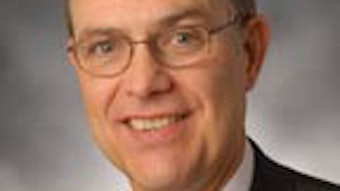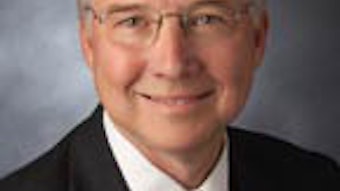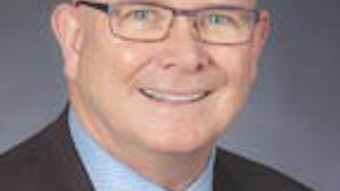Academy Staff Monitor Hospital Outpatient Panel (HOP) Recommendations to CMS
On February 27, Health Policy staff attended a meeting of the Advisory Panel on Hospital Outpatient Services at the Centers for Medicare & Medicaid Services (CMS) in Baltimore, MD. Formerly known as the Advisory Panel on Ambulatory Payment Classification Groups (APC panel), the panel provides recommendations to CMS regarding the assignment of medical services to Ambulatory Payment Classifications groups (APCs) that are used to determine reimbursement for hospital outpatient services provided to Medicare patients. Services are assigned to APC groups based on clinical and resource similarities. The panel traditionally meets up to three times a year and consists of 19 members comprised of various providers and specialties, including physicians, hospital administrators, and/or other full-time employees of hospitals or hospital systems. To be nominated as a panel member, nominees must have a minimum of five years’ experience in their listed area of expertise and must be a full-time employee of a hospital, hospital system, or any other Medicare provider subject to payment under the Outpatient Physician Payment System (OPPS). Panel members may serve up to four-year terms and may serve past the expiration of his/her term until a successor has been elected and sworn in. All members serve on a voluntary basis without compensation excepting reimbursement for related travel expenses. A federal official designated by the Secretary of the U.S. Department of Health and Human Services (HHS) or the Administrator of CMS traditionally serves as the chair and facilitates the panel meetings. The chair’s term will traditionally last four years, but may be extended at the discretion of the Administrator or his/her duly appointed designee. Some of the panels’ specific charges in its charter include: Addressing whether procedures within an APC group are similar both clinically and in terms of resource use Reconfiguring APCs (for example, splitting of APCs, moving Healthcare Common Procedural Coding System (HCPCS) codes from one APC to another, and moving HCPCS codes from new technology APCs to clinical APCs) Evaluating APC group weights Review packaging the cost of items and services, including drugs and devices, into procedures and services; including the methodology for packaging and the influence of packaging the cost of those items and services on APC group structure and payment Removing procedures from the inpatient list for payment under the OPPS Using claims and cost reporting data for CMS’ determination of APC group costs Addressing other technical issues concerning APC group structure Evaluating the level of supervision required for hospital outpatient services In regard to physician supervision, the panel often makes recommendations to CMS on whether a specific service requires general, direct, or personal supervision to ensure the appropriate level of quality and safety for delivery of a service, as defined by the appropriate HCPCS and CPT code. In a new initiative to expand the scope of our work and keep members informed of critical policy changes for services rendered in an outpatient setting, Health Policy staff will begin monitoring APC Panel recommendations and attending the in-person meetings. During the February meeting, the panel made several recommendations aimed at decreasing costs of outpatient services and creating a more efficient setting for providers to render outpatient procedures. Despite the fact that most of the panel’s recommendations from the February meeting did not affect AAO-HNS membership, staff will continue to monitor APC Panel recommendations to CMS in future meetings to ensure we are providing input to CMS, and the APC Panel, on important reimbursement and policy decisions affecting the Hospital Outpatient Prospective Payment System at every available opportunity. If you are encountering any issues with services rendered in an outpatient setting, or wish to learn more about the APC Panel, email the Health Policy team at healthpolicy@entnet.org.
On February 27, Health Policy staff attended a meeting of the Advisory Panel on Hospital Outpatient Services at the Centers for Medicare & Medicaid Services (CMS) in Baltimore, MD. Formerly known as the Advisory Panel on Ambulatory Payment Classification Groups (APC panel), the panel provides recommendations to CMS regarding the assignment of medical services to Ambulatory Payment Classifications groups (APCs) that are used to determine reimbursement for hospital outpatient services provided to Medicare patients. Services are assigned to APC groups based on clinical and resource similarities. The panel traditionally meets up to three times a year and consists of 19 members comprised of various providers and specialties, including physicians, hospital administrators, and/or other full-time employees of hospitals or hospital systems.
To be nominated as a panel member, nominees must have a minimum of five years’ experience in their listed area of expertise and must be a full-time employee of a hospital, hospital system, or any other Medicare provider subject to payment under the Outpatient Physician Payment System (OPPS). Panel members may serve up to four-year terms and may serve past the expiration of his/her term until a successor has been elected and sworn in. All members serve on a voluntary basis without compensation excepting reimbursement for related travel expenses.
A federal official designated by the Secretary of the U.S. Department of Health and Human Services (HHS) or the Administrator of CMS traditionally serves as the chair and facilitates the panel meetings. The chair’s term will traditionally last four years, but may be extended at the discretion of the Administrator or his/her duly appointed designee.
Some of the panels’ specific charges in its charter include:
- Addressing whether procedures within an APC group are similar both clinically and in terms of resource use
- Reconfiguring APCs (for example, splitting of APCs, moving Healthcare Common Procedural Coding System (HCPCS) codes from one APC to another, and moving HCPCS codes from new technology APCs to clinical APCs)
- Evaluating APC group weights
- Review packaging the cost of items and services, including drugs and devices, into procedures and services; including the methodology for packaging and the influence of packaging the cost of those items and services on APC group structure and payment
- Removing procedures from the inpatient list for payment under the OPPS
- Using claims and cost reporting data for CMS’ determination of APC group costs
- Addressing other technical issues concerning APC group structure
- Evaluating the level of supervision required for hospital outpatient services
In regard to physician supervision, the panel often makes recommendations to CMS on whether a specific service requires general, direct, or personal supervision to ensure the appropriate level of quality and safety for delivery of a service, as defined by the appropriate HCPCS and CPT code.
In a new initiative to expand the scope of our work and keep members informed of critical policy changes for services rendered in an outpatient setting, Health Policy staff will begin monitoring APC Panel recommendations and attending the in-person meetings. During the February meeting, the panel made several recommendations aimed at decreasing costs of outpatient services and creating a more efficient setting for providers to render outpatient procedures. Despite the fact that most of the panel’s recommendations from the February meeting did not affect AAO-HNS membership, staff will continue to monitor APC Panel recommendations to CMS in future meetings to ensure we are providing input to CMS, and the APC Panel, on important reimbursement and policy decisions affecting the Hospital Outpatient Prospective Payment System at every available opportunity.
If you are encountering any issues with services rendered in an outpatient setting, or wish to learn more about the APC Panel, email the Health Policy team at healthpolicy@entnet.org.





